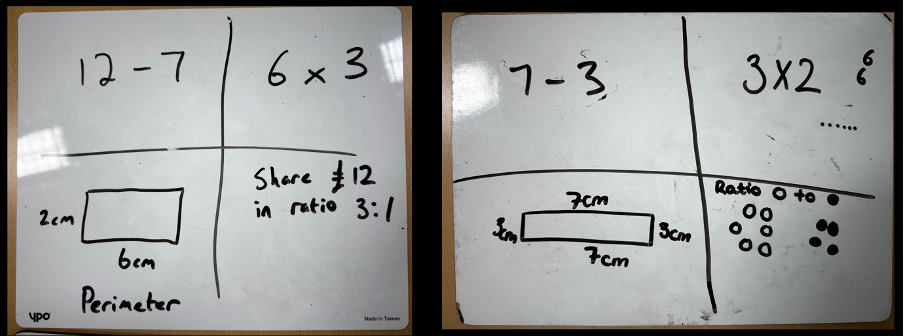Calling all innovative middle schools in the US! Join Eedi's fully-funded math pilot to bring AI-powered tools, live tutoring, and professional learning to your Grade 6 math team. Know a school that might be interested?Read more and apply here!
Follow-up questions are a key component of a solid checking for understanding and responsive teaching routine.
Imagine your students are struggling with a question. You intervene, offering a clear and concise explanation. Without a good follow-up question, your only option is to ask: Does that make sense?, and then interpret the inevitable silence as a signal of understanding.
No, a good follow-up question provides much more reliable evidence that your intervention has had the desired impact.
In an edition of my Tips for Teachers newsletter, I wrote about the need to plan such follow-up questions in advance. If you don’t, you risk either making up a poor follow-up question that doesn’t adequately address the concept you are re-testing, or being unable to think of a follow-up question on the spot because of the complexity of the question itself.
The challenge of writing good follow-up questions was highlighted during a recent session with an ECT I have been coaching.
On the left, we have the four retrieval questions she chose for her Do Now. On the right, we have the four follow-up questions that I asked her to write to be used as the re-check for understanding if her students struggled.
Before I start prattling on, what are your initial thoughts on her choice of follow-up questions?
I think each follow-up question is problematic. Let’s go through them in turn.
1. The subtraction question
12 – 7 challenges students to subtract across the threshold of 10. As a result, they must change from 2 digits to 1 digit. Students don’t have enough fingers for this. However, the follow-up question does not assess this.
2. The multiplication question
Here, we have a shift in difficulty from dealing with a 6 to dealing with a 2. If students get the first question wrong, it is likely that their issue concerns either the 6 times table or multiplications with numbers greater than 5. Either way, the follow-up question does not assess this.
3. The question about perimeter
If students go wrong on the original question, it is probably because they either confuse the area with the perimeter and hence multiply the two numbers, or they remember that the perimeter has to do with addition but just add the two numbers shown. In the follow-up question, all dimensions are labelled, hence a key step in the process has been done for them.
4. The question about ratio
The original question assesses students’ ability to share in a ratio. The follow-up question tests a different skill: writing a ratio.
In each of the cases above, the students could get the follow-up question correct, but still not understand a key concept within the original question.
But it is all too easy to go too far the other way - to write a follow-up question so similar to the original that little thought beyond changing a few numbers is needed. Here is an example of the latter:
The original question tests students’ ability to correctly find the percentage multiplier, ready to input into their calculator. However, the follow-up question uses the exact same percentage, so that skill is not tested.
The takeaway here is two-fold:
Always prepare follow-up questions in advance of the lesson – it is much easier to do your thinking outside the noise of a lesson
Don’t underestimate the challenge of writing a good follow-up question. Ask yourself what the original question assessed, and ensure your follow-up question assesses the same thing while still requiring your students to think. Showing a colleague your original question and asking them what follow-up question they would write is a useful way to collaborate.
Check out my deep-dive into Aila from Oak National Academy if you want support writing good follow-up questions.
How and when do you write follow-up questions?
What do you agree with, and what have I missed?
Let me know in the comments below!
🏃🏻♂️ Before you go, have you…🏃🏻♂️
… checked out our incredible, brand-new, free resources from Eedi?
… read my latest Tips for Teachers newsletter about motivation?
… listened to my latest podcast with Ollie Lovell where we discuss the Do Now?
… considered booking some CPD, coaching, or maths departmental support?
… read my Tips for Teachers book?
Thanks so much for reading and have a great week!
Craig





Really good advice, this. I think what I probably do is the other way round - I might make the follow-up question a bit too more of a leap forward from time to time, so that’s something to work on. Thanks for the pointers!